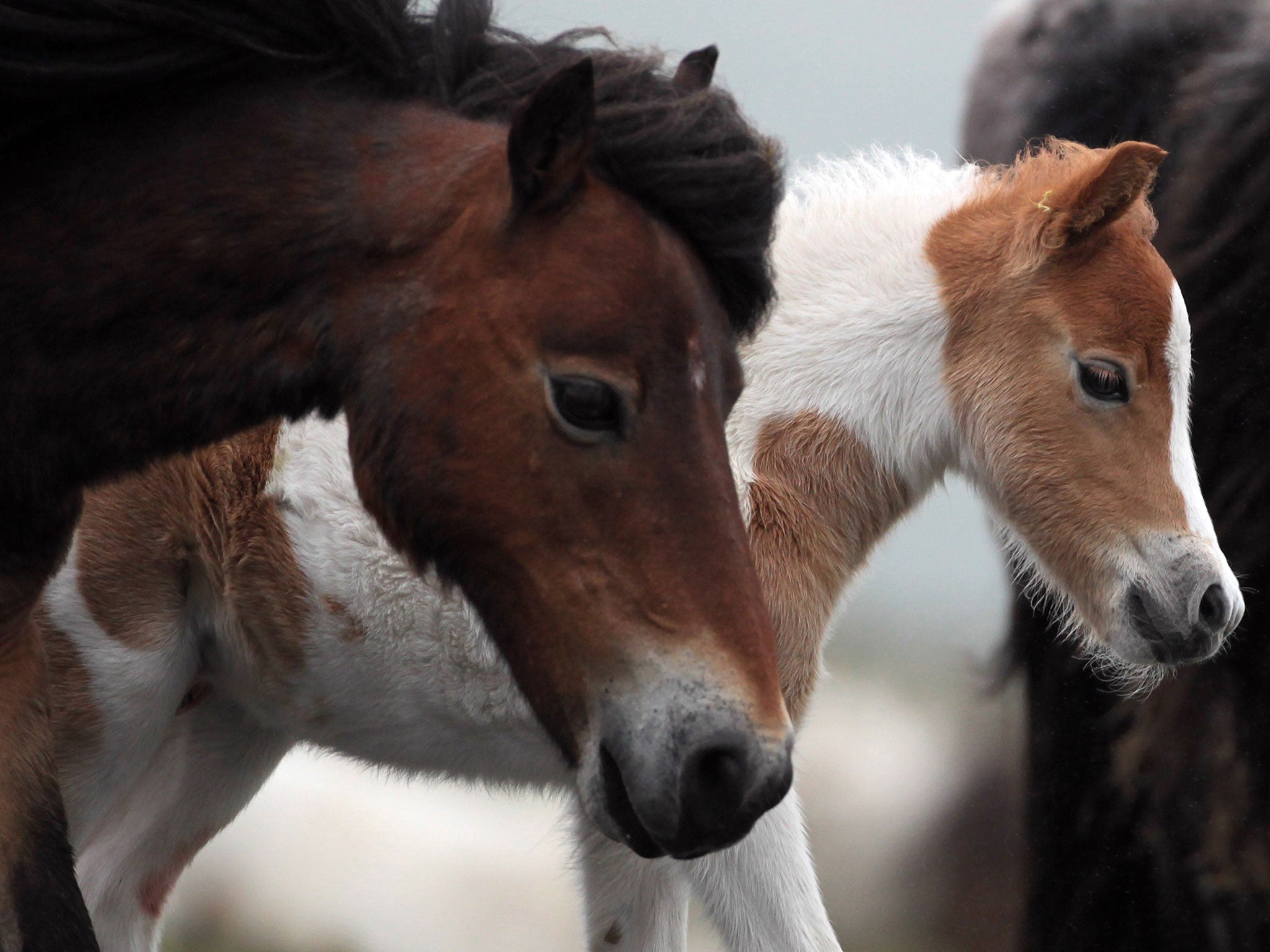Sorry, but the best way to save Dartmoor's ponies is not by devouring them
Can the animal conservation group who made the recommendation actually be serious?

Your support helps us to tell the story
From reproductive rights to climate change to Big Tech, The Independent is on the ground when the story is developing. Whether it's investigating the financials of Elon Musk's pro-Trump PAC or producing our latest documentary, 'The A Word', which shines a light on the American women fighting for reproductive rights, we know how important it is to parse out the facts from the messaging.
At such a critical moment in US history, we need reporters on the ground. Your donation allows us to keep sending journalists to speak to both sides of the story.
The Independent is trusted by Americans across the entire political spectrum. And unlike many other quality news outlets, we choose not to lock Americans out of our reporting and analysis with paywalls. We believe quality journalism should be available to everyone, paid for by those who can afford it.
Your support makes all the difference.The Dartmoor Hill Pony Association (DHPA) has suggested eating ponies to protect them. With friends like that, who needs enemies?
Last year, people were outraged to discover that they might have been eating horses for years. The scandal left a bitter taste in the mouths of the British public, not only because of the subversive way that equine meat was being passed off as something else entirely but also because most people adore horses and the thought of eating them turns their stomachs.
READ MORE
Children and adults love ponies in equal measure. These sweet animals form loving lifetime bonds and relationships which would be torn apart if the meat industry had its way, leaving these emotional animals with heartache and psychological scars. If these Dartmoor ponies were grazing peacefully one day and then hanging from butcher's hooks the next, protesters would overrun the streets of Devon.
Of course, this actually isn't the first time that supposed “equine lovers” have suggested slaughtering equines and gorging on their dead bodies. Last year, in a speech to the World Horse Welfare charity of all groups, the Princess Royal tried to argue that people would look after horses more carefully if they were planning to turn them into steaks and burgers later on.
Anyone who has ever watched one of the countless exposés of mistreated cows, chickens and pigs who are raised and slaughtered for food knows how utterly ridiculous that is. Today's factory farms – where the vast majority of the 1bn land animals and fish killed and eaten in the UK every year are raised – are filthy, dark and disgusting places that you wouldn't wish on your worst enemy.
The bizarre suggestion by Princess Anne and the DHPA does make an unintentional valid point: there is no difference between eating a pony or a pig – all animals are made of flesh, blood and bone. When it comes to suffering, all animals – whether a horse, a cow, a corgi or a human child – have the same capacity to feel fear and pain as well as love and contentment.
How can we justify protecting certain species, taking them into our homes and treating them as friends while treating others as mere commodities? The objective answer is that we can't. All animals are someone, not something to put on a plate. Cows form strong friendships, are inquisitive and have been known to have eureka moments, but on factory farms they are denied everything that is natural and important to them.
Pigs are known to dream, recognise their own names and learn tricks, such as sitting for a treat. They lead social lives of a complexity that until recently had been observed only in primates. On today's factory farms, they are crammed by the thousands into filthy windowless sheds. The first time they are likely to feel the sunshine on their backs or breathe fresh air is when they are loaded onto lorries bound for slaughter.
But intelligence isn't even the point. Being brainy does not entitle one human to abuse another human, nor should it entitle humans to abuse non-humans. Every living being with a will to live should have the right to live free from pain and suffering.
The ongoing horsemeat debate serves a purpose for all of us who care about animals: it's an opportunity to question underlying assumptions about why certain species are loved and cherished as individuals, while others are spurned and seen simply as pieces of meat.
The thought of eating ponies appals most of us, so let's not be hypocrites – let's stop eating all animals.
Join our commenting forum
Join thought-provoking conversations, follow other Independent readers and see their replies
Comments